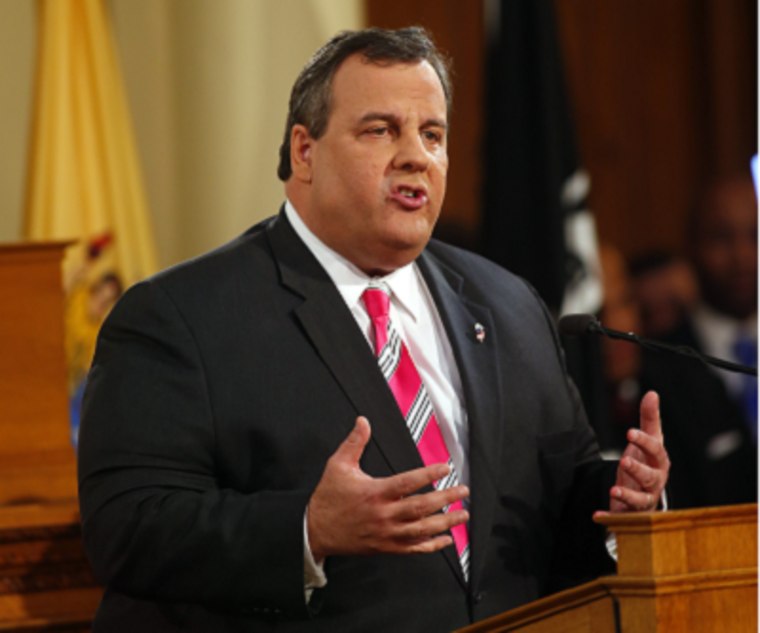The death Monday morning of Sen. Frank Lautenberg, a New Jersey Democrat, deprives the Senate of a staunch liberal voice for gun safety, protecting kids from toxic chemicals, and bolstering public transportation, among other issues. But it also will likely give the GOP an additional Senate seat—at least for now.
Under New Jersey’s laws, Gov. Chris Christie, a Republican, will appoint an interim replacement, until a special election is held.
Ross Baker, a political science professor at Rutgers University and a veteran observer of the state’s politics, told msnbc he expects Christie, who may have aspirations to run for president in 2016, to appoint a moderate Republican.
“In terms of his own political future, if he were to go with someone who was a Democrat, I think that would pile on top of his Hurricane Sandy meeting with Obama among things that the conservative wing of the party doesn’t like," Baker said.
Christie “could probably find among them people who would be acceptable to Democrats,” he said, but added: “There's no guarantee that whoever he chooses would pursue a centrist course.”
Baker named Republican congressmen Leonard Lance and Jon Runyan as potential replacements. Lance “comes from the governor’s own political milieu,” Baker said.
The fill-in would then face a special election, likely this November when Christie will also seek re-election as governor. There would then be another election in November 2014, when the term ends. With New Jersey a solidly blue state and Newark mayor Cory Booker eyeing the seat, Republicans had figured to face a steep uphill climb to hold onto the seat. But with the advantage of incumbency, their chances could improve.
Temporarily cutting the size of the Democrats’ majority, currently at 53-47, by one seat, figures to give Majority Leader Harry Reid even less room to maneuver than he currently enjoys. Even a moderate Republican would likely vote with the GOP more often than not, as recent centrist Republican senators like Scott Brown, Olympia Snowe, and Susan Collins have done.
